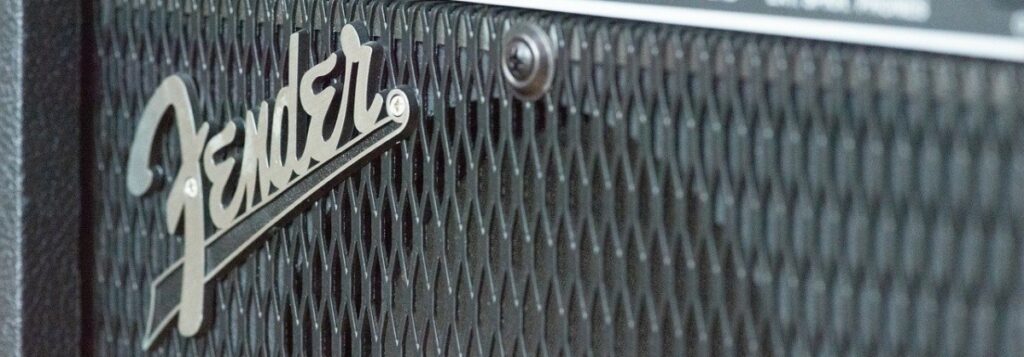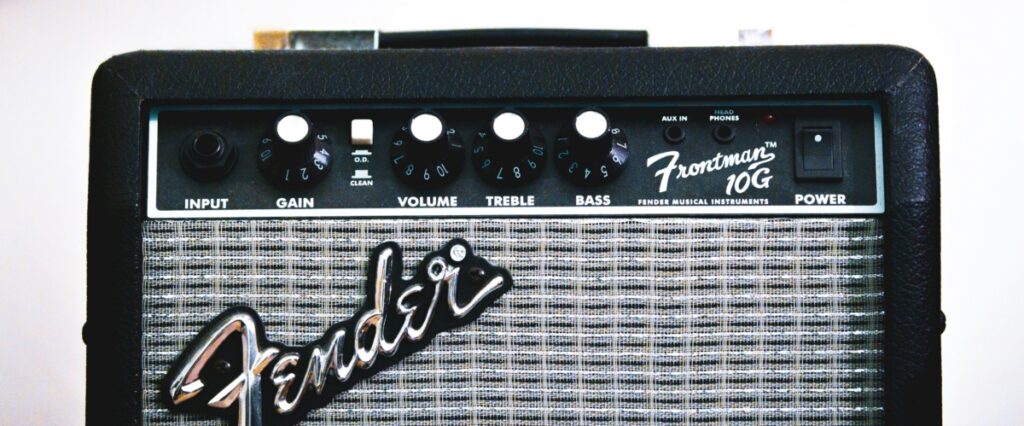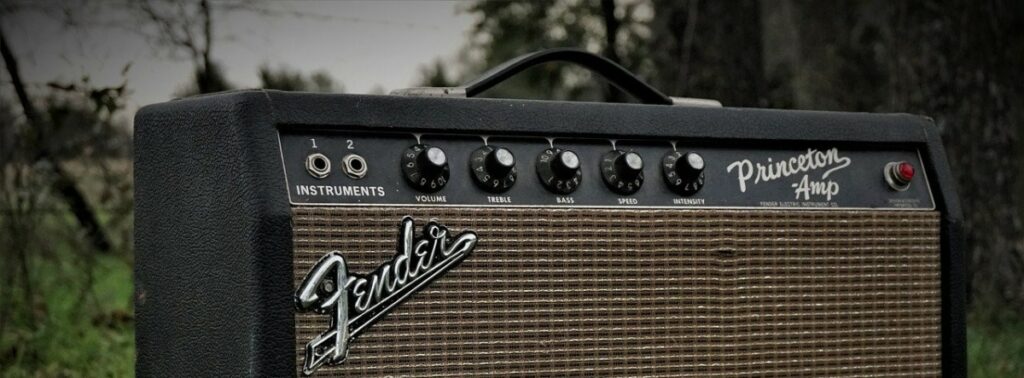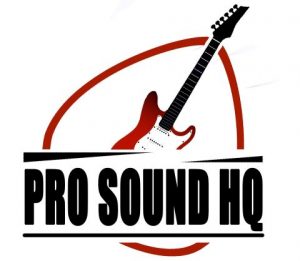Fender make some of the most iconic amplifiers in the guitar industry which are popular with both professionals and beginner guitarists. However, there range is so large that it does make it tough to figure out how much you actually need to spend to get the right amp.
In this article I’ll compare the average prices of Fender amplifiers so you can get a gauge of how much you’ll need to budget for.
The Quick Answer
Fender amplifiers cost between $80 and $2500 on average. Solid-state Fender amps cost between $80 and $500, whilst tube (valve) amps typically cost upwards of $400. The amp’s price primarily depends on the power rating, technology (tube or solid state) and the number of features and controls.

Types of Fender Amp
As I mentioned above, the price of Fender amps varies massively depending on the technology, power rating and features.
The first thing you’ll need to do is figure out if you want a combo amp or a stack amp setup.
- Combo amps house the cabinet (speaker) and the amp in the same unit.
- Stack amps consist of a separate cabinet and amp head which are connected together.
Fender primarily specialise in combo amps although, there are a few stack amp options available. Keep in mind that you’ll need to factor in the price of both the head and cabinet if you are going with a stack setup, which usually ends up being more expensive.
If you are unsure which option is best for you, take a look at my comparison between combo and stack amps to get your answer.
Next, you’ll need to know what technology you want the amp to use. There are two options here:
- Solid-state: these amps are cheaper and lighter.
- Tube (valve): these amps are often preferred for their rich and warm tone.
The technology the amp uses massively impacts the price, with tube amps costing significantly more than solid-state amps. If you haven’t already figured out which type is best for you, then check out my comparison between tube and solid state amplifiers to learn about all the pros and cons.
Finally, you need to know what power rating you need. This refers to the wattage of the amp and impacts how loud it is. It probably goes without saying, but the louder the amp, the more expensive it’ll be.
I’ve also written a guide to wattage and how loud an amp needs to be for certain locations to help you narrow down your selection.
In the rest of the article I’ll break down the average cost of the following different types of Fender amplifier:
- Entry-Level
- Solid-State Combo
- Tube Combo
- Head Units
- Cabinets
Entry-Level Fender Amp Prices
Fender’s beginner guitar amplifiers cost between $80 and $150 on average. They are all solid-state combo amplifiers.
There are three models to choose from here:
- Fender Frontman 10G
- Fender Champion 20
- Fender Mustang LT25
The Frontman is the cheapest amp and is very basic but it’s price makes it a suitable option for new players. The Champion offers a significant step up and includes multiple effects whilst still being easy to use and cost-effective. The Mustang LT25 offers the most effects and the highest power, but is a bit more confusing to use for beginners and costs $150.
Here is a table comparing Fender’s entry-level guitar amps.
| Amplifier | Wattage | Price | Settings |
| Fender Frontman 10G | 10W | $80 | 2 channels, gain, treble, bass |
| Fender Champion 20 | 20W | $130 | 2 channels, gain, treble, bass, reverb, delay, chorus, tremolo, flanger, phaser, vibrato |
| Fender Mustang LT25 | 25W | $150 | 30 presets, gain, 3 band EQ |

Solid State Combo Fender Amp Prices
When you look past the entry-level amps and step up the price to $200+, you’ll find some more advanced solid-state combo amps which sound better and include even more features. These amps are aimed towards players with a little bit of experience, or beginners with a larger budget.
There are two main amp series to consider here: Mustang and Champion. I’ve written a full comparison between Fender Mustang and Fender Champion amplifiers here if you want some more detail.
Here is a table comparing Fender’s solid-state combo guitar amps.
| Amplifier | Wattage | Price | Settings |
| Fender Champion 40 | 40W | $220 | 2 channels, gain, treble, bass, reverb, delay, chorus, tremolo, flanger, phaser, vibrato |
| Fender Champion 50XL | 50W | $230 | 2 channels, gain, treble, bass, reverb, delay, chorus, tremolo, flanger, phaser, vibrato |
| Fender Mustang GTX 50 | 50W | $380 | 30 presets, gain, 3 band EQ, reverb |
| Fender Champion 100 | 100W | $400 | 2 channels, gain, 3 band EQ, reverb, delay, chorus, tremolo, flanger, phaser, vibrato |
| Fender Champion 100XL | 100W | $450 | 2 channels, gain, 3 band EQ, voice control, reverb, delay, chorus, tremolo, flanger, phaser, vibrato |
| Fender Mustang GTX 100 | 100W | $500 | 200 presets, gain, 3 band EQ, reverb |
Tube Combo Fender Amp Prices
Most of the amplifiers in Fender’s range are tube combo amps. These are highly sought after and sound fantastic which makes them very popular with professional players all across the globe.
Fender’s tube (valve) combo amplifiers cost between $400 and $2500 with the average price being roughly $1000.
Here’s a quick breakdown of each amp in the range:
- Super-Champ X2: comes with plenty of effects and is the most affordable tube amp available.
- Bassbreaker: comes in 7W, 15W, 30W and 45W sizes and has more modern styling.
- Hot-Rod: includes the Junior and Deluxe models and are mid-range in terms of price.
- Vintage-Modified: this series consists of the ’68 models.
- Super-Sonic: there is one 22W combo in this series which is very versatile.
- Vintage-Reissue: this includes the ’65 models which are the flagship tube amps.
Here is a table comparing Fender’s tube combo guitar amps.
| Amplifier | Wattage | Price | Settings |
| Fender Super-Champ X2 | 15W | $400 | 2 channels, gain, voice, treb, bass |
| Fender Bassbreaker 007 | 7W | $450 | Gain, 3 band EQ, treb boost |
| Fender Pro Junior IV | 15W | $600 | Tone |
| Fender Blues Junior IV | 15W | $650 | 3 band EQ, reverb |
| Fender Bassbreaker 15W | 15W | $650 | Gain, structure, 3 band EQ, reverb |
| Fender ’68 Custom Vibro Champ Reverb | 5W | $750 | 3 band EQ, tremolo, reverb |
| Fender Blues Deluxe Reissue | 40W | $800 | 2 channels, drive, 3 band EQ, reverb, presence |
| Fender George Benson Hot Rod Deluxe | 40W | $900 | 3 band EQ, reverb, presence, various switches |
| Fender Bassbreaker 30R | 30W | $900 | 2 channels, 3 band EQ, gain, reverb |
| Fender Super-Sonic 22 | 22W | $1050 | 2 channels, 3 band EQ, gain, reverb |
| Fender ’65 Princeton Reverb | 12W | $1100 | Treble, bass, reverb, tremolo |
| Fender Tone Master Super Reverb | 45W | $1200 | 2 channels, 3 band EQ, gain, reverb, tremolo |
| Fender 68 Custom Pro Reverb | 40W | $1300 | 3 band EQ, tremolo, reverb, bright switch |
| Fender Vintage Reissue ’65 Deluxe Reverb | 22W | $1400 | 3 band EQ, tremolo, reverb |
| Fender ’68 Custom Twin Reverb | 85W | $1500 | 3 band EQ, tremolo, reverb, bright switch |
| Fender Vintage Reissue ’65 Twin Reverb | 85W | $1700 | 3 band EQ, tremolo, reverb, bright switch |
| Fender Vintage Reissue ’65 Super Reverb | 45W | $1800 | 3 band EQ, tremolo, reverb, bright switch |
| Fender ’64 Custom Deluxe Reverb | 20W | $2500 | 3 band EQ, tremolo, reverb, bright switch |

Head Unit Fender Amp Prices
Fender only has two head unit amps in the range at the time of writing this article. Here is a table comparing them.
| Amplifier | Wattage | Type | Price | Settings |
| Fender Bassbreaker 15W | 15W | Tube | $600 | Gain, 3 band EQ, structure, reverb, bright switch |
| Fender Super-Sonic 22 | 22W | Tube | $1000 | 2 channels, 3 band EQ, gain, reverb |
Fender Cabinet Amp Prices
Fender’s cabinet amps cost between $350 and $950, with most models costing less than $450. They range from 60W to 140W and have either a 1×12″ or 2×12″ speaker.
Here is a table comparing Fender’s amp cabinet range.
| Cabinet | Power Rating | Speaker | Price US |
| Fender Hot Rod Deluxe | 80W | 1×12” | $350 |
| Fender Bassbreaker | 70W | 1×12” | $350 |
| Fender George Benson Signature Hot Rod | 100W | 1×12” | $450 |
| Fender Bassbreaker | 140W | 2×12” | $450 |
| Fender Super-Sonic 60 | 60W | 2×12” | $900 |
In the market for a new amplifier? Check out my complete amplifier buyer’s guide to help narrow down your selection and find the perfect amp for you.
